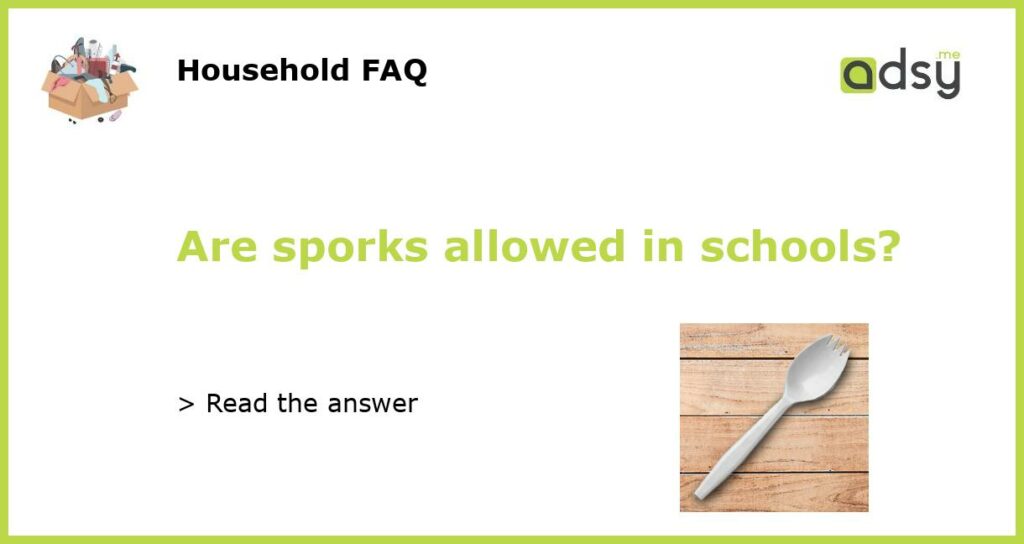Are Sporks Allowed in Schools?
Sporks, the hybrid utensils that combine a spoon and a fork in one, have become increasingly popular in recent years. They are often marketed as convenient and versatile tools for eating, especially in outdoor and on-the-go settings. However, when it comes to schools, the question of whether or not sporks are allowed is not always clear-cut. The answer varies depending on the specific school district and its policies.
School Lunch Policies
In many schools, the use of sporks is not explicitly addressed in the official policies regarding lunchtime utensils. This lack of specific guidance can lead to confusion and inconsistency across schools within the same district. Some schools may allow sporks as long as they do not pose a safety hazard, while others may not allow them at all.
One reason for the ambiguity surrounding sporks is that they may be seen as a potential weapon. The fork-like tines on a spork could potentially be used in a harmful or dangerous manner. As a result, schools may choose to ban sporks to maintain a safe environment. Other schools may have more relaxed policies and allow sporks, trusting that students will use them responsibly.
Food Allergen Concerns
Another factor that may come into play when considering whether or not sporks are allowed in schools is food allergens. Sporks that are used for both spooning and forking may increase the risk of cross-contamination, especially if they are not thoroughly cleaned between uses. This can be problematic for students with severe food allergies.
Many schools have stringent protocols in place to prevent cross-contamination and protect students with allergies. These protocols often include requirements for separate serving utensils for different food items and thorough cleaning between uses. Schools that prioritize food safety may be more likely to disallow sporks in order to minimize the risk of cross-contamination.
Eco-Friendly Alternatives
As schools increasingly prioritize sustainability, there has been a push to reduce the use of single-use plastic utensils, including sporks. Some schools have implemented eco-friendly policies that encourage students to bring their own reusable utensils, such as metal forks and spoons.
By encouraging students to use traditional utensils, schools can reduce the amount of waste generated by single-use plastic sporks. Students can easily clean and reuse their own utensils, promoting a more sustainable approach to eating. In these schools, sporks may not be allowed as part of a broader effort to reduce plastic waste.
Exceptions for Special Education Students
It’s important to note that there may be exceptions to spork policies for special education students who have specific dietary or sensory needs. In some cases, sporks may be allowed as reasonable accommodations to ensure that these students can eat comfortably and independently.
Special education students with physical disabilities or sensory sensitivities may find sporks easier to handle and use compared to traditional utensils. As a result, schools may make exceptions to their spork policies to ensure that these students have access to the necessary tools for their meals.
The permissibility of sporks in schools is not a straightforward matter. It varies depending on the school district’s policies, including considerations for safety, food allergens, sustainability, and the individual needs of special education students. To find out the specific rules regarding sporks in a particular school, it is best to consult the school’s official policies or reach out to the administration directly.






